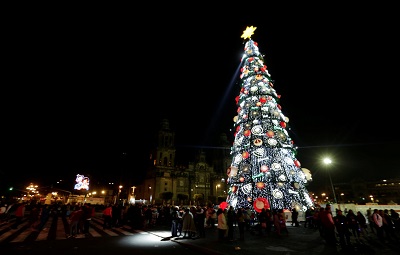Where is God?
It is one of the common questions of eighth-grade theology (which is generally more insightful and useful than post-doctoral theology): If God really exists, why doesn’t he show himself in some dramatic, undeniable way?
In response, author and minister Frederick Buechner proposes a thought experiment. What if God were to rearrange the stars in such a fashion that they spell out “GOD IS” in the sky, maybe to the accompaniment of soaring celestial music? For some time, Buechner speculates, the houses of worship would overflow, wars would stop and there would be “a good many tears of regret.”
And then one night, as Buechner tells it, a child with a wad of bubble gum in his cheek (speaking French in Buechner’s version) turns to his father and says: “So what if God exists? What difference does that make?” Then the message and music would fade, “or maybe they would continue for centuries to come,” says Buechner, “but it would no longer make any difference.”
Many of us, having seen the shining words at one point or another in our lives — knowing in our bones that we once knew, beyond all the doubts of philosophy, that GOD IS — have eventually turned away with a shrug. We continue with the normal, instinctual tendencies and occupations of homo sapiens, summarized by the “Four F’s” — fighting, fleeing, feeding and . . . mating. We worry about finances, politics and our health, living as though our tiny lives on a small planet near an average sun in a galaxy of a hundred billion stars among 100 billion galaxies really matter to anyone. And we see only futility and cruelty in the countless lives shortened by disease or disaster, or afflicted by poverty or conflict.
We have every reason and right to question where God can be found in a world that offers no certainty written in the sky.
Where is God in the oppression of whole peoples by cruel and corrupt dictators who care nothing for the lives of the innocent? Or among more than 60 million refugees torn from their homes and forced to live as resented strangers?
Where is God in the cruel stigmas we apply to one another when it comes to AIDS, or out-of-wedlock births or other matters of sexuality?

Where is God in the normal, often boring, occasionally squalid, preoccupations of everyday life? In the temptations and ambitions that can lead us away from our true purpose? In the anxiety and depression that stalk our days?
Where is God in the death of a friend? In being doubted by a friend? In being betrayed by a friend?
Where is God in our march toward death, either slow or fast, but always onward? When optimism becomes delusion, and hope finally fails, and we are left feeling forsaken by a silent God?
Where is God in the lowly places, in the denial of lodging to a pregnant woman, in the smell of hay and manure, in the pain of childbirth, in the smack on the bottom of an infant who begins to breathe and cry?
“Behold, I bring you good tidings of great joy, which shall be to all people. For unto you is born this day in the city of David a Savior, which is Christ the Lord.”
By any standard, this is an odd scenario for the entrance of divinity — to an occupied country, of disputed parentage, forced to flee as a refugee, living and working 30 years in silence, eventually betrayed by a friend, judicially tortured and dying in utter abandonment. On a small planet, near an average star.
But this form of arrival does something important. It dusts off and reclaims every aspect of human experience and reorients our sense of low and high, weak and powerful. It is poverty given preference. It is the possibility of transcendence breaking in on any common day. It is the unexpected humility of God.
We cannot assume, of course, that this is real or true. But for countless millions who have accepted it, this story has divided B.C. and A.D. in their own lives. It has provided courage and comfort in the midst of the ordinary, the unjust and the unthinkable. It has given assurance that pain, while real, is not permanent. And it has kindled and sustained an unlikely hope — that love is somehow at the heart of all things.





